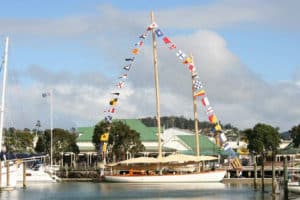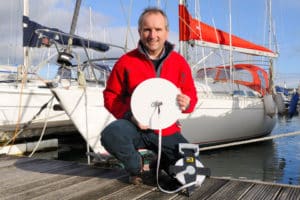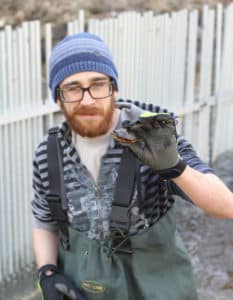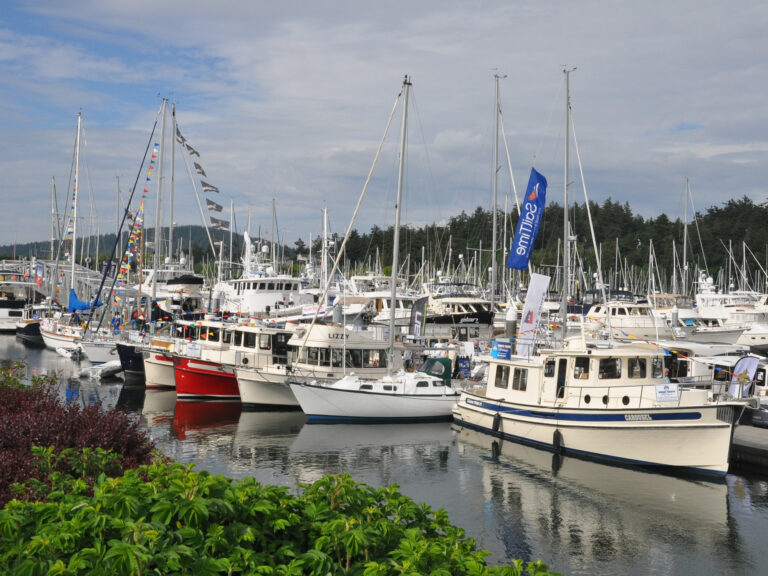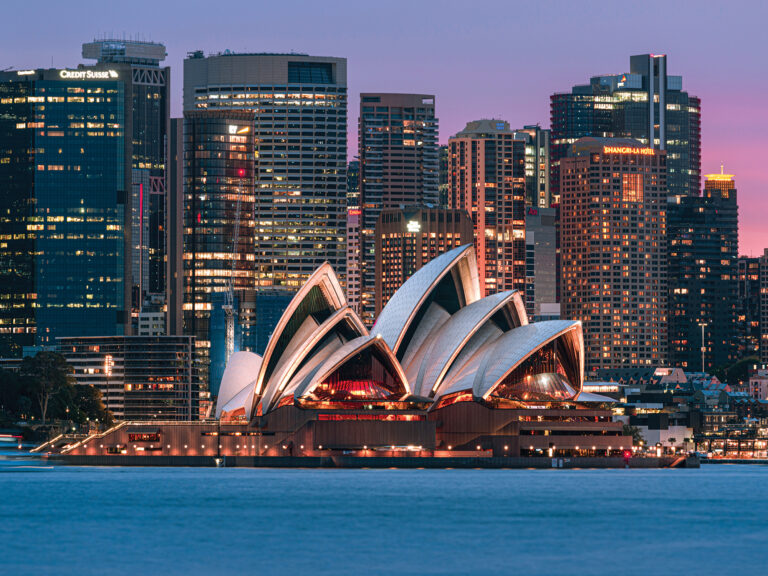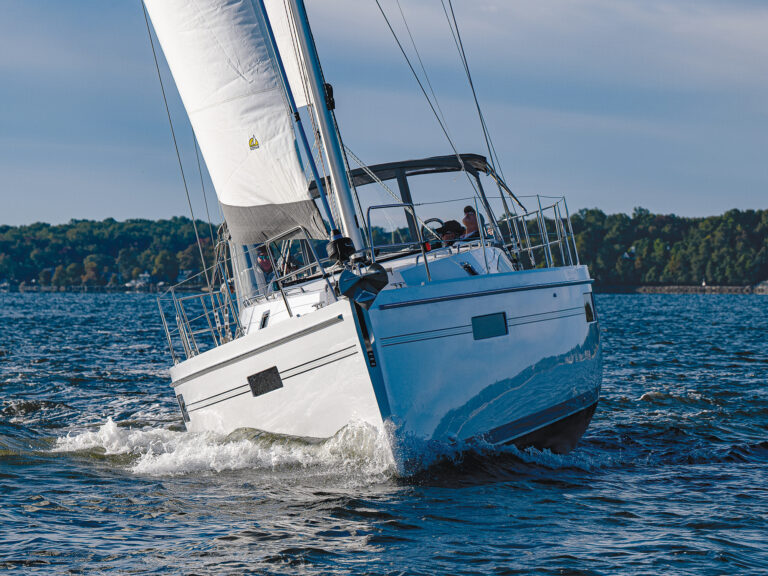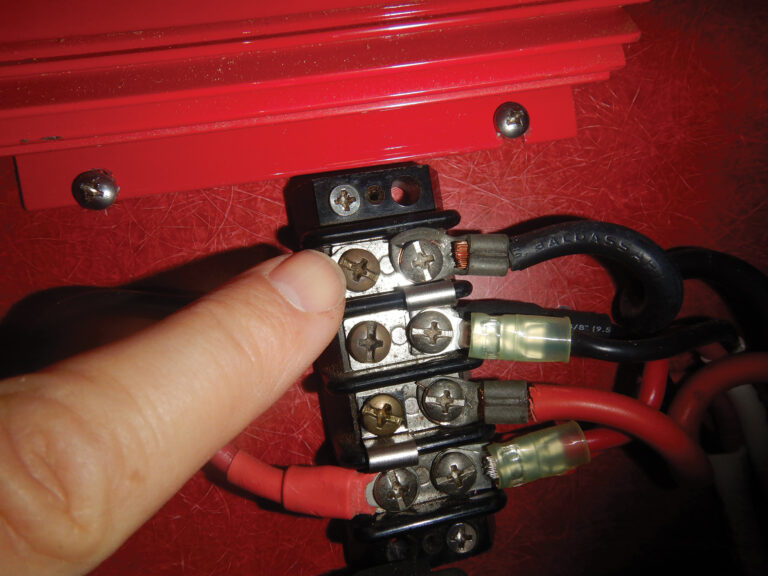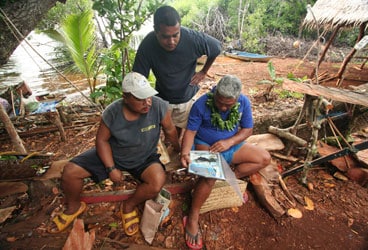
Micronesia
It’s hard to know when something begins. When you first think of it? When you take the first, concrete action? When it takes over your entire life? The first time it makes you cry?
I believe our quest for a new boat started in earnest five years ago on Yap, one of the islands in the Federated States of Micronesia—even if my wife, Carolyn, and I were oblivious to it.
Here’s the scene: We’re cruising in Micronesia, one of the most desolate places in the Pacific. A gregarious chief is with us on board Wild Card. He’s chewing betel nut, drooling, and swilling beer while wearing little but tattoos, and he’s leering at Carolyn.
We’re making meaningless small talk, “nice-nice” as Carolyn calls it, when I’m startled to hear her suddenly get serious.
“Who did?” she asks the chief.
“They did,” he replies and vaguely indicates the outside world with a sweep of his well-muscled arm. After all, it’s all overseas to him. “They installed free WiFi all over the island.”
“That’s amazing!” I say and grin reassuringly while Carolyn dashes for her beloved laptop.
Within minutes of her fingers dancing across the keyboard, she rejoins the conversation. “Totally unbelievable! Strong signal. No password. Completely free. Truly cyberheaven, and in paradise, too!”
When Carolyn gets a strong WiFi connection, she doesn’t waste her time viewing sites featuring naked boy-toys. She learns stuff. Cool stuff. Useful stuff. And what she learned that day was about something new, a device called a Kindle.
“Oh, come on,” I responded with a yawn. “What’s wrong with an old-fashioned book? Can you angrily throw a Kindle across the room when you’re disgusted by sloppy writing? Read one in the cockpit during a strong gale? Secretly stash money in one? Press a treasured flower between its yellowed pages? How does a Kindle smell? Plastic-y, I bet. I love the smell of a good book, that delightfully literary odor that blasts you as you enter an antiquarian book store.”
In any event, we loved Yap. Its people are very rugged, very hardy, and very can-do. And best of all, its maritime culture is still strong. For instance, many of the islands have three chiefs: a high chief, a chief of agriculture, and a chief of the young people.
While we were visiting, four young teenage lads, all aspiring wave-finders, the name for traditional navigators, were getting a bit rambunctious. “You’ve been partying a lot harder than you’ve been working,” the chief of the youth told them one Friday afternoon. “No beer for you this weekend!”
Undaunted, they snuck away Saturday morning aboard their tiny outrigger canoe that’s built without any metal fastenings whatsoever and sailed 40 miles without chart, compass, or lights to the next island to visit its liquor store. But the chief of the kids was a smart fellow. He’d called ahead. Instead of beer, they got a stern lecture and were ordered back to their island for punishment.
Unfortunately, there were many severe squalls in the area that weekend, and the four young lads didn’t return. Days passed, then weeks. Everyone assumed they’d died at sea in a storm.
Then, three weeks later, right in the middle of their funeral, a call came through from Guam, 500 miles away to windward.
It was the international media calling, asking the chief for a sound bite: What did he think of their four young heroes, who’d survived the longest beer run in Pacific history?
Carolyn and I both got a chuckle at this charming bit of local gossip. “I bet they didn’t learn their wave-finding skills on a Kindle,” I said, laughing.
She was too smart to take the bait.
It was about then that I became restless and antsy. I wanted to be off. Mother Ocean called. But instead, I cooled my heels and waited for Carolyn to finish up a cyber project that I declared to be too silly to describe.
“Nice weather window in two days!” I told her somewhat pointedly for the umpteenth time.
“Wait a sec,” she said, her lovely brow furled with intense concentration over her keyboard. “I’m almost finished.”
She then made a dramatic gesture and punched the send button. You could almost hear the swoosh of bits and bytes being uploaded into cyberspace from Yap’s free WiFi.
“That’s it,” she said. “I’m done. They’re off, all three, to Kindle and CreateSpace.” The latter is another dot-com publisher.
“You’re not really going to create any more space, nor matter, for that matter, no matter how many times you check your Facebook page,” I muttered with a techie-type yawn. “The universe is a closed loop, don’t you know? Einstein had the last word. The space/time continuum is passé!”
“Girls can be computer nerds, too,” was all she said in her own defense.
The next few months were magic, utter cruising magic. We left Micronesia and enjoyed a wonderful offshore passage to the Philippines. The Filipinos are a very warm, very gracious people. They took us into their hearts like long-lost siblings. They had almost nothing and yet were more than happy to share. (See “The Heaven & Hell of the Philippines,” September 2010.)
They taught us a lot about manners, about graciousness, and about how human dignity wears no price tag. Good people are good people, even those too poor to have teeth.
There was only one problem; there always is. My banker was having an accounting meltdown, but he wouldn’t admit it. The two of us had had previous procedural problems, and bankers, in general, seem to love to bedevil sailors. My having no fixed address was “highly unusual,” as he put it. “Ditto no phone, no credit cards, no bills.” He seemed to question my very existence, even wondering how a person could live outside of a 9-to-5 routine.
At first, I thought our Yahoo email account must have been hacked. But that made no sense. I wasn’t lacking money—I was awash in it. If it was a cyberscam, it was a clever one. I couldn’t quite see how giving away money to me could be profitable—but, hey, why ask questions?
“Look!” I screamed across an international telephone wire. “I haven’t made any deposits! I’m not even there! I haven’t even been in America for years. There’s been a mistake!”
“These are not walk-in deposits,” said my banker patiently, pretending no irritation. “These are direct deposits. Electronic deposits. You don’t have to be here to make them. But someone is making them. I think it’s a Mister Kind.”
“Kind?” I asked.
“No, sorry,” he said, correcting himself. I heard the sound of papers shuffling. “Mister Kindle. Are you currently sailing in the Amazon area?”
“Er, I’ll get back to you,” I said, then hastily rang off.
The truth slowly began to dawn. It was that cyberpunk wife of mine. What madness was she mixed up with now?
“It’s legal, Fatty,” she said, acting all prim and proper about posting our books online. “Totally legal. We’re not printing money. We’re digitally printing eBooks. No trees have to die. It’s eco-OK. No ink is spilt. Lumber trucks don’t even have to lug heavy stuff around. Best of all, there’s no tooling-up costs, only profit. Nice, eh?”
Before I could formulate a properly clever, condescending response, she added, “And of all the things to bitch at me about, I’d think earning us money would be rather low on your list.”
That’s the trouble with having a smart wife: It’s easy for her to run intellectual circles around you.
“Well,” I said begrudgingly as I tried to salvage some scrap of dignity. “Keep me better informed next time, OK?”
“Aye, aye, skipper!” she said, her tone offering only the faintest hint of sarcasm.
Now, I’ve had a lot of strange experiences in my lifetime, but how to handle extra, unexpected income hasn’t been one of them. So I didn’t know what to do. And when I don’t know what to do, I do nothing. In this case, I did it for years, and lots of them.
After all, we’d been successfully limping our way around the world on my magazine income. Why suddenly spend more just because you’re making more? Isn’t that kinda stupid?
In fact, I even paid the income taxes on my book royalties out of our periodical income so that every single book buck and penny was banked, not spent. You could say that what turned into our boat fund grew despite us.
This wasn’t easy. There were numerous times when spending a grand or two would’ve eased our way in life. But we didn’t loosen the purse strings.
We scrimped and we saved and we watched our little nest egg grow from a distance, all the while sailing through paradise and completing our seven-year, pennies-per-mile circumnavigation.
One perfect afternoon in the middle of the Atlantic, with La Palma and the Canary Islands two weeks astern and the Caribbean two weeks ahead, Carolyn musingly said to me, “You know, we really can’t afford to stop circumnavigating.”
“That’s weird,” I said in agreement. “Kind of a mind game, eh? We sail on the barest of pennies and turn a profit on our sea-going poverty. I can’t quite get my head around it. Is it a cool t’ing or a bad t’ing, mon?”
“I dunno,” she said. “But it surely is what it is.”
There was silence.
“You don’t have any clothes on,” I finally said.
“Neither do you,” she responded.
I waited.
She smiled.
Home from their trip round the world, Cap’n Fatty and Carolyn Goodlander spent the summer revisiting old haunts in the Caribbean.
Want to sail with Cap’n Fatty? Check out his Adventure Charter in the Virgin Islands, November 30-December 8, 2012.
Read more of Fatty and Carolyn’s adventures here.
Find Fatty’s books in the Kindle Store here.

